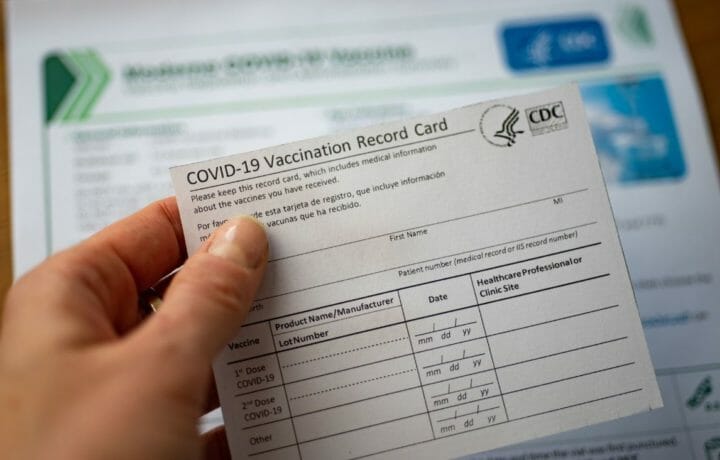Despite the recent adjustment on the timeline for defense contractors to meet the vaccine mandate, recruiters are still looking for candidates who meet the requirements set out by the White House. The interview process can become even more of an awkward dance when recruiters have to ask about a candidate’s vaccine status or plans. One way to solve that issue is to openly state vaccine status on your resume. It cuts to the chase, but for many, it feels weird to start providing a medical status on a professional document. There are pros and cons to either decision, and of course, it all depends on your vaccine choice.
Pros for Adding Your COVID-19 Vaccine Status on Your Resume
A recent study by ResumeBuilder found that 33% of hiring managers just pass over resumes without a COVID-19 vaccine status on them. While that’s only a third, the immediate dismissal of a resume without a status of the COVID-19 vaccine alone can play a role in the job search process. That means that there are recruiters who don’t have time in the hiring process to have a personal conversation with a candidate about their vaccine status – despite the level of experience and qualifications. It’s already time-consuming to tailor every resume to individual employers, and to get added to the eliminated pile regardless of qualifications is an unnecessary frustration. And while others may not immediately pass over candidates who don’t list their status, other hiring managers will give a higher priority to candidates who have added vaccination status to their resume.
CONS for Adding Your COVID-19 Vaccine Status on Your Resume
While some people may have personal reasons for not adding their status, the only negative to adding it is if you are not vaccinated. If you are someone who has made the decision to not be vaccinated, instead of adding your vaccination to your resume, you can either choose to add in your cover letter with some explanation or work through that on the phone or in person if your resume is selected. The reality is that because of federal and state mandates, recruiters simply don’t have a choice in the vaccine requirements. Even if the recruiter doesn’t ask for it in the hiring process, most employers have added vaccine questionnaires to their employment screening processes.
Employers Need to Be Clear About Requirements
Carolyn Kleinman, a career coach and professional resume writer says “Unless there is a clearly stated policy on vaccination status, asking up front for this information may be over-stepping boundaries. Additionally, employers could be losing out on qualified candidates if they use that as a screener, as it is not common practice to include this information on resumes.”
While it’s true that organizations will potentially lose out on talent, at the same time, without the ability to place a qualified candidate on a contract that requires employees to be vaccinated, employers’ hands are tied. Most contractors are already adding the vaccine requirement to their job postings or career websites. For those who haven’t yet, that verbiage will regularly show up, the closer we get to January 8. Until then, if you’re looking for work in national security, you’re vaccinated, and you don’t have a personal issue with adding a medical status to your resume, it is one way to keep you in the running and at the top of the pile.




